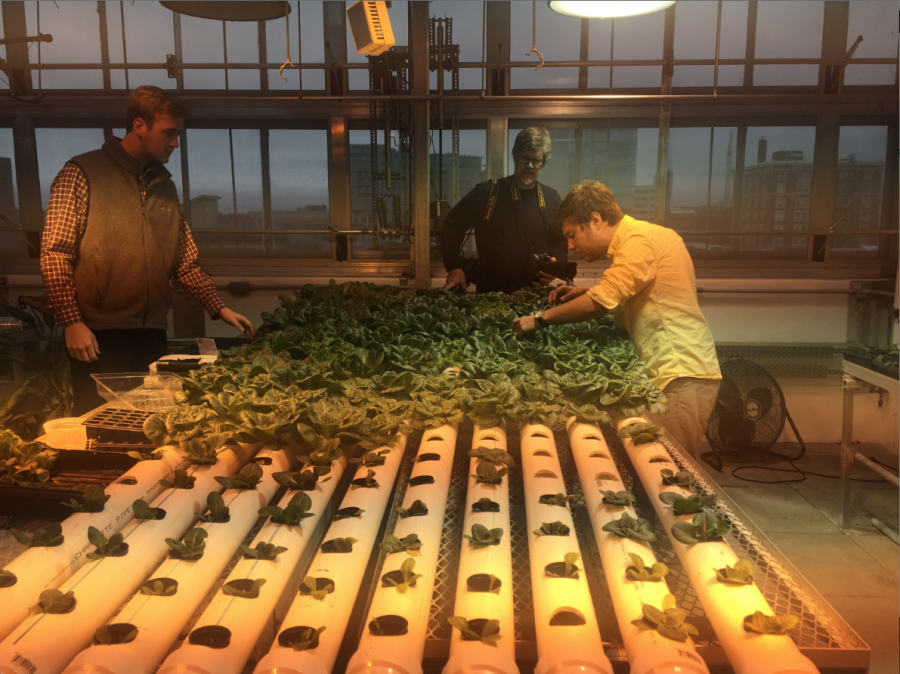Soil-free lettuce grown by UI students is being used in the UI dining halls.
By Katelyn Weisbrod
[email protected]
Five University of Iowa students are growing local lettuce for the dining halls without using soil.
The students use a hydroponic system, which pumps nutrient-rich water through tubes, to grow 200 heads of lettuce. This is a project for the Frontier-Tippie Sustainability competition, in which three groups of students strive to make an impact on campus with a sustainability-focused project.
On Thursday, the group collected its first harvest. Five different varieties of lettuce were grown to be sold to University Housing & Dining at the price of $1 per head.
“It’s been wildly successful; we actually have produce, and we’ve had curiosity from the community,” said Grant Gregory, one of the students working on the project. “We have had people who want to privately invest, and we have a school that wants to put one on its roof.”
Liz Christiansen, the director of the UI Sustainability Office, said the group has also had interest from local chefs and restaurant owners.
“It’s high-quality produce, so I think the potential is there,” Christiansen said. “It’s a great way to reduce our carbon footprint and get fresh vegetables when they’re not available locally.”
The competition will end in April, and most of the group will graduate, but group member Andrew Hirst said they plan to pass the system along to UI Gardeners to continue producing locally grown lettuce.
“We have just started transitioning and letting them know how to operate the system,” Hirst said.
The system cycles water mixed with a nitrogen, phosphorous, and potassium solution at a slow rate so the plants still receive oxygen. It is for the most part self-sustainable, but every two to three days someone needs to fill the water and check the nutrient levels.
Gregory said the system is also economically viable. Part of the purpose of the competition is to find sustainable alternatives that are competitive with non-sustainable practices. Gregory said they have yet to crunch the numbers to find out how long it would take for the system to pay off.
The group plans to reinvest any profits back into the system to expand. If the group wins the competition in April, it will receive a $1,000 prize, which Gregory said, would also be put into the system.
“I think this can be a huge solution to problems with sustainability in the future,” he said.
Christiansen said she hopes this production can continue to grow even after this group leaves. This system yields more produce in less space with fewer resources.
“When we think about providing food for 9 billion people someday, I think this is a viable option,” Christiansen said.



